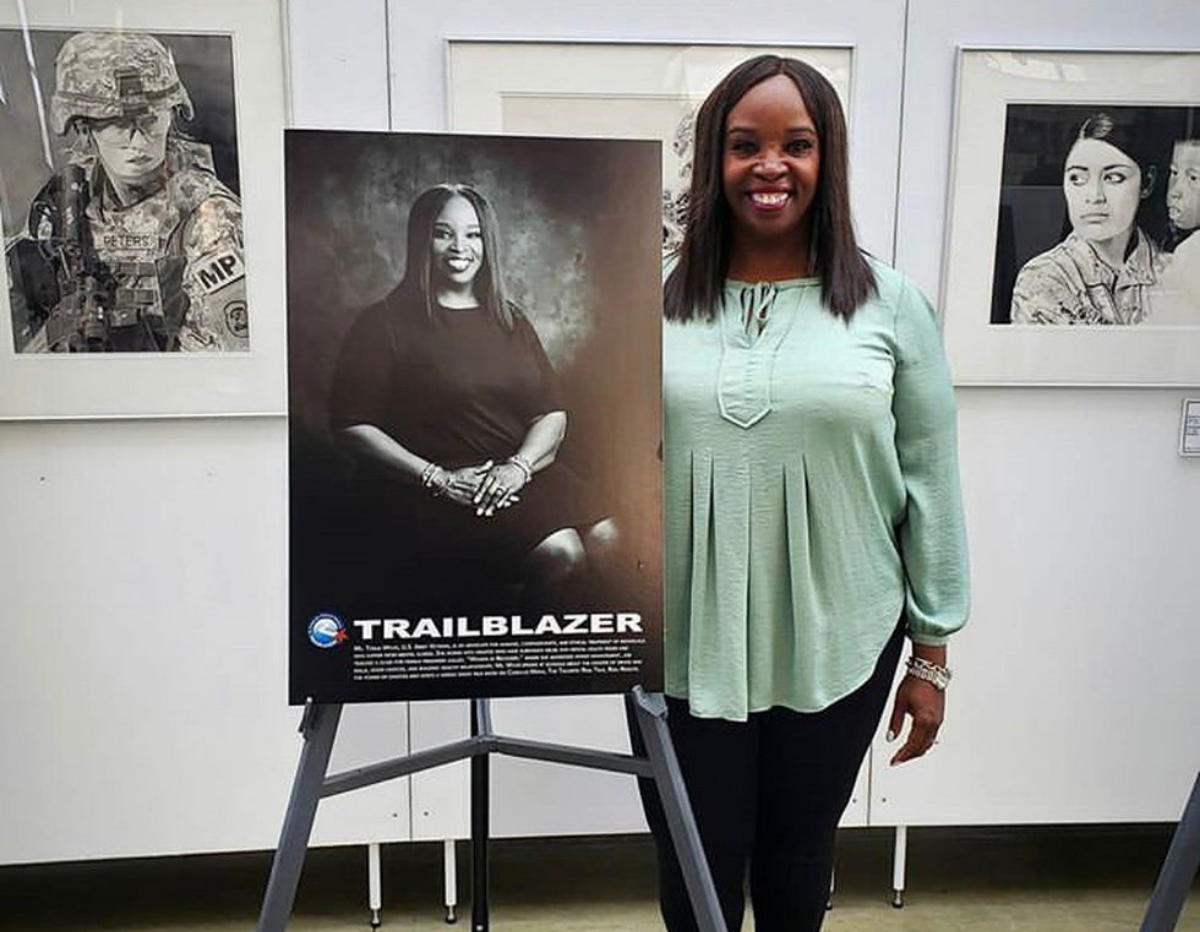
When Tonja Myles looked around her community and saw the people struggling with substance issues, she couldn’t help but see herself. Sharing the trauma with many of the people that she serves, Tonja is perfectly positioned to advocate for people suffering with substance abuse.
She struggled with PTSD after years of unhealed trauma related to the sexual violence she experienced as a child and physical violence in adolescence.. Throughout the years she abused substances to numb the pain of her past, while people around her told her to “go to church and get her life right.” “My issues were swept under the rug,” she said. At her lowest point, she said she looked to God and promised to use her experience to help others.
Now, almost 38 years in recovery, Tonja has used her story to place her in rooms she normally wouldn’t be in. She uses the tagline “from the crack house to the White House” to show her journey from her lowest point to her partnership years ago with the Bush Administration concerning addiction.
“Sometimes I’m the only Black person in the room, or the only woman in the room,” she said. She uses these opportunities to uplift the stories of those that aren’t in the room. “I appreciate the spaces I’m in, but I speak for the people that don’t have a voice.” She makes it a point to speak truth to power and be the most passionate person in those conversations.
Tonja started Set Free Addiction Services because people struggling with substance abuse in Baton Rouge needed “wrap around” services. Seeing a lack of support for this community, Tonja started serving on Fridays out of her own house. Now, she has the structure to support people and their families along the road to recovery. Set Free even helps to hold our justice system accountable for their role in substance abuse, by fostering relationships with police officers and faith leaders.
The city is still recovering from 2016, when three traumatic events overwhelmed the community. It started when police officers murdered Alton Sterling in the parking lot of a corner store, an incident that was caught on camera. Days later, as the city wrestled with tension, a gunman killed three police officers and wounded nine others in a horrifying response. Then, to make matters worse, a historic hurricane hit Louisiana.
Despite these awful episodes and the continued accrual of trauma that Baton Rouge citizens experience, Tonja is optimistic about the future of the city.
She has a long working relationship with the city’s mayor-president for over 30 years, and she works closely with the police chief. Tonja said they know about the importance of healing from trauma, a critical view for any city official to have.
She said, however, “we can’t police people into non-violence,” in response to the outrage and frustration that community members had from the trauma of witnessing a Black man murdered by the police. Tonja believes change in Baton Rouge starts with the community. As long as the work is being done, she is confident that they’ll make a difference.
As a Trauma and Healing Network member, Tonja said she’ll bring some much needed comedic relief. “The work we do is hard and we need a laugh,” she said. She’s excited for the comradery and the collaboration that the network will bring. She wants to bring more awareness about mental health and substance abuse. In her words, she’s thrilled about “being a part of a team to help save lives.” Tonja has been saving her own life for 38 years now, and she doesn’t want others to have to go it alone.



